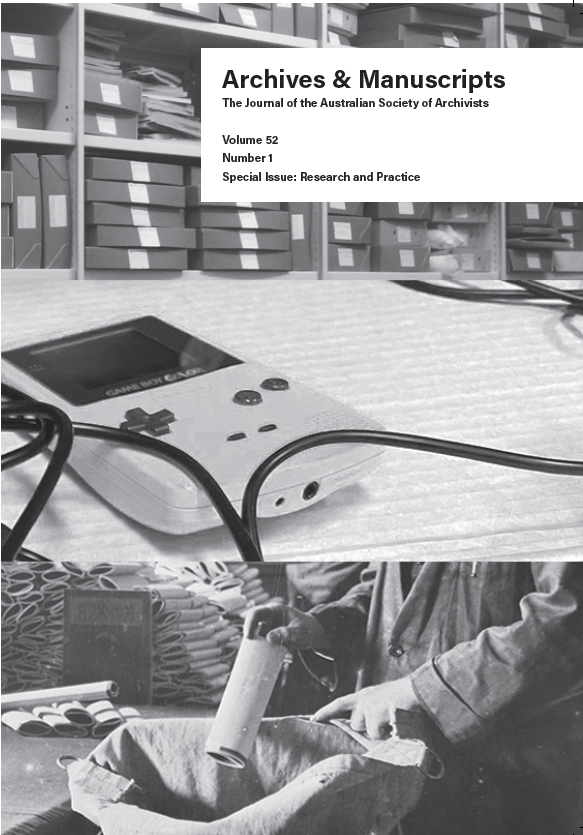Post-Custodialism, Distributed Custody, and Big Data
Abstract
This reflection piece describes the outcomes of a research project undertaken by the National Archives of Australia that aimed to gather information from other government archives and selected Australian government agencies about their approach to archiving and preserving large-big datasets in the government sector. Big data collections pose a challenge for government archives around the world. Many of these archives have a role in information management in their government domains and provide guidance and advice to their government agency clients on ensuring the integrity and trustworthiness of data over time. The article examines the nexus between theory and practice, exploring issues related to the post-custodial ideas developed by Terry Cook and others in the 1990s and their practical implementation.
Copyright (c) 2024 James Doig

This work is licensed under a Creative Commons Attribution-NonCommercial-NoDerivatives 4.0 International License.
From 2022 (Volume 50) authors contributing to Archives & Manuscripts agree to publish their work under the terms of the Creative Commons Attribution-NonCommercial-NoDerivatives License), which permits non-commercial re-use, distribution, and reproduction in any medium, provided the original work is properly cited, and is not altered, transformed, or built upon in any way. Authors retain copyright of their work, with first publication rights granted to A&M.




